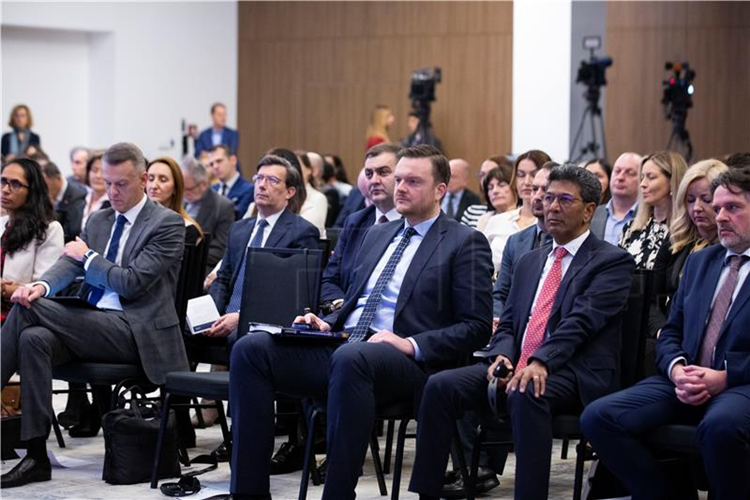- Published: 01.02.2023.
Productivity Reforms Can Boost Growth and Living Standards for Croatia
Attaining higher living standard for citizens, speeding up convergence with average European Union (EU) income levels, and doubling long-term growth per capita are well within Croatia’s reach.
This can be delivered by deepening reforms with a focus on improving the productivity of the overall economy, strengthening the quality of education, and increasing labor market participation, according to a new World Bank report presented today, at the Raising Croatia’s Long-Term Growth and Productivity conference.
The World Bank report - Laying the Foundations: Boosting Productivity to Ensure Future Prosperity in Croatia – looks at long-term growth prospects of the Croatian economy. The report argues that the key elements for boosting productivity are strengthening institutions, reducing market inefficiencies, and upgrading firms’ performance.
Presented by World Bank Senior Country Economist for Croatia, Josip Funda, the report suggests that an ambitious reform scenario could double income per capita growth to three percent on average by 2050. This would enable Croatia to close the income gap with the EU27 average in just a decade and a half.
“The role of the Government is to design and implement policies that set the preconditions for raising productivity. This Government has shown its commitment towards transformational processes, and we remain committed to further strengthening our economic and social environment. Our National Recovery and Resilience Plan represents an important tool for raising the long-term productivity and growth of the Croatian economy, addressing the necessary improvements in the business environment, education, science, research and innovation as well as strengthening of our institutions.” stated Marko Primorac, Minister of Finance of the Republic of Croatia. “I also use this opportunity to thank the World Bank for the significant support provided in designing and implementing the National Recovery and Resilience Plan, as well as an entire series of analytical reports based on which the Croatian stakeholders devised important reform measures. All this proves that the Bank recognizes and actively participates not only in financing, but also in facilitating and strengthening our capacity for EU grant funds absorption.”
Over the last two turbulent decades Croatia has impressively joined the EU, improved its policy and institutional framework, and achieved macroeconomic and financial stability. As a step towards full EU integration, the country entered the eurozone and the Schengen area which, along with access to abundant EU funds, will further strengthen Croatia’s resilience and trade integration. This creates an environment where the returns on further reforms can be much higher.
“Many of the reforms critical for growth are already envisioned in Croatia, and once implemented, will provide a major boost to the country’s growth potential. Croatia can further accelerate its path to higher prosperity by staying the course of its reform program in areas that will increase productivity, including through digitalization and R&D, improving educational outcomes, strengthening institutions for firm entry and trade while fostering more competition”, said Gallina A. Vincelette, Regional Director for the European Union Countries at the World Bank. “Increased attention to the green transition also provides an excellent opportunity to decouple economic growth from environmental degradation and put the country on a more sustainable path.”
Improvements in productivity in the manufacturing and Information and Communication Technology (ICT) sectors can bring large benefits. While Croatia performs well in several low-skill tradable services such as accommodation and restaurants, achieving similar outcomes in manufacturing and knowledge-intensive service industries such as ICT can fuel the country’s high export potential.

.png?width=750&height=500)
.png?width=750&height=500)